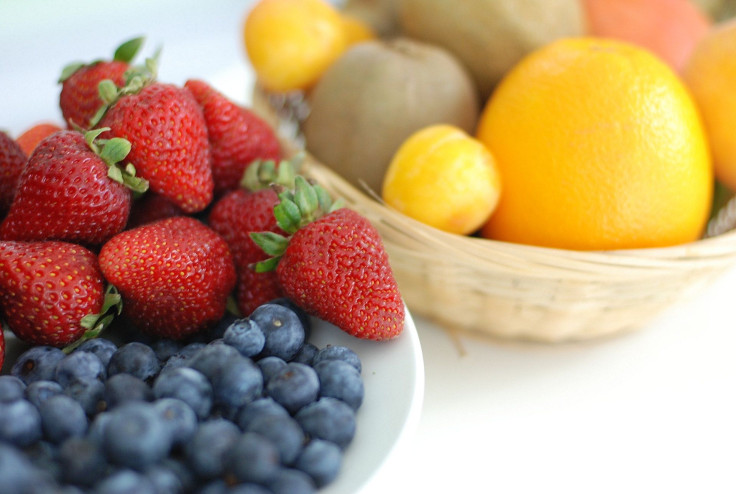What Are The Best Fruits For Weight Loss? A Dietician Weighs In

Are strawberries fattening? Are grapes or watermelon? It seems weird to pit fruit as something that hurts rather than helps with weight loss — but it’s possible. In addition to beneficial vitamins, antioxidants, and fiber, it also contains calories, carbohydrates, and sugar. So it’s no surprise people often consider cutting out certain fruits, if they don’t just cut fruit out altogether. In fact, Abby Langer, RD, hears it all the time.
“Someone will tell me they don’t eat tropical fruits, they don’t eat bananas,” Langer told Medical Daily. “When it all comes down to it, the differences between fruits are so minute. The amount of sugar in red apples versus blueberries is not even worth the trouble or the pain of consideration.”
Langer doesn’t believe in sticking to a certain part of the produce aisle, even if a study suggests adding prunes to a healthy diet can help you drop pounds and centimeters off your waistline. (Prunes are a concentrated fruit, and when compared to fresh, it doesn't feel worth it, she said.) She's averse to Dr. Google too, since on there "anything is fattening." But she doesn't think fruit is a free for all, either.
The first trick is to be mindful of the amount of fruit you eat at a time. Langer recommends two servings a day, about a half cup when talking about the kind that's easily portioned or cut: berries, cherries, and melons. And she also recommends eating fruit in conjunction with something else. Some classic combinations include banana with peanut butter or a hardboiled egg; an apple with a couple slices of cheese; and fresh apricots and mixed nuts.
“What this does is create a situation where the combination of nutrients — protein to carbs to fat — is going to help you stay fuller for longer,” Langer said. On the other hand, if someone wanted to eat a half cup of mango each day, a tropical fruit known for its high sugar levels, she's not convinced anything "bad will happen to you."
That's ultimately a major key to weight loss. You want to feel fuller during each meal so that you're less likely to snack or overeat throughout the day. And yet no one fruit works this kind of magic.
The second trick is to be honest. Fruits like watermelon and grapes are made of mostly water — 92 and 87 percent, respectively — and since water fills you up, then it must be some of the healthiest produce out there. But these also happen to be some of the fruits people easily eat by the bowl. If you don’t know what a single serving looks like, or can’t control yourself to stop once you’ve had it, then Langer suggests stocking the fridge with some alternatives.
A word on grapefruits: The phytochemicals that give it its bright pink color are a great source of lycopene, a powerful antioxidant that may help ward of diseases like Alzheimer’s and cancer. But the idea it can burn fat, Langer said, isn’t scientifically sound.



























